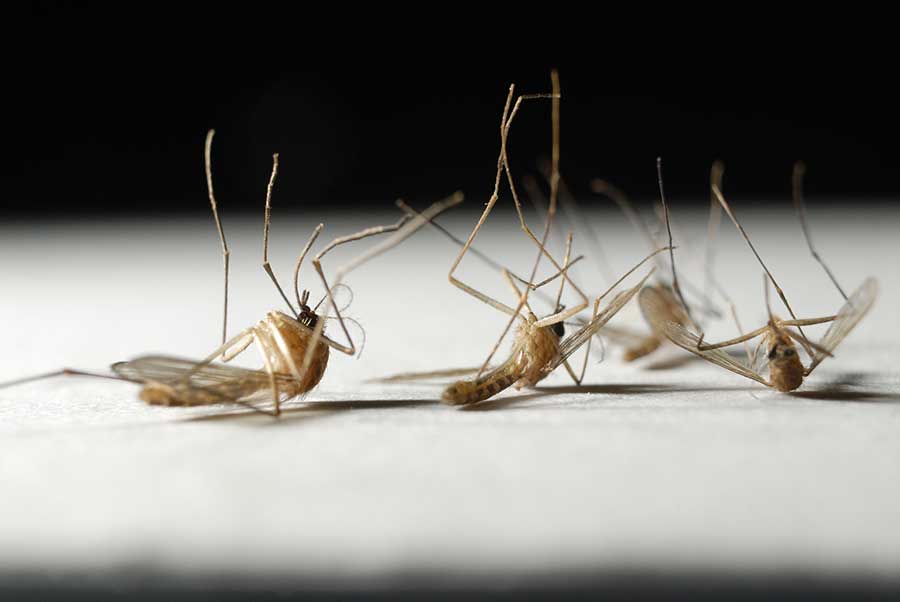
The lifespan of a mosquito is shaped by a combination of biological, environmental, and ecological factors. Understanding these factors is crucial for developing effective mosquito control strategies, which are essential for reducing the spread of mosquito-borne diseases and improving public health. Despite their short lives, mosquitoes continue to thrive and adapt, making them one of the most resilient and challenging pests to manage. Contacting a professional mosquito exterminator is crucial to effectively reduce mosquito populations and minimize the risk of mosquito-borne diseases.
Mosquito Life Cycle
It takes approximately 14 days for a mosquito to complete its life cycle. Understanding this lifecycle is essential for effective mosquito control and disease prevention strategies. Here is an overview of the typical mosquito life cycle process:
- Laying Eggs: Female mosquitoes need a blood meal to reproduce. Once they have fed, they will deposit their eggs on or near stagnant water.
- Hatching: The eggs will hatch within 24 to 72 hours. After hatching, the larvae, often called wrigglers, live in the water. They come to the surface to feed on microorganisms and organic matter.
- Pupal Stage: After about a week or 10 days, the larvae reach the pupal stage. Pupae do not feed. They spend a few days at the water’s surface acclimating to the air.
- Emergence: Adult mosquitoes emerge from the pupal case and rest on the water’s surface to allow their wings to dry and harden. This process takes a few minutes to several hours.
- Feeding: Male mosquitoes typically feed on nectar and other plant juices. Female mosquitoes also feed on nectar but require a blood meal.
- Mating: The females mate only once, storing the sperm to fertilize multiple batches of eggs throughout their lifespan.
- Reproduction: After mating and obtaining a blood meal, females lay eggs, starting the cycle anew.
Do You Have a Mosquito Problem? We Can Help.
Click the button below to leave your information & we'll be in touch in an hour or less.
How Long Do Mosquitoes Live?
Male mosquitoes, which feed on plant nectar, generally live for a week or two, whereas female mosquitoes can survive for over a month. Mosquito eggs can endure for months before hatching. Despite their brief life cycle, the fast reproductive rate of mosquitoes ensures their populations remain constant during the summer months.
How Do Mosquitoes Die?
It is a common misconception that mosquitoes die after biting someone. In reality, female mosquitoes feed multiple times throughout their lifespan. Generally, mosquitoes live for one to two months and perish when temperatures drop below 50 degrees. However, some females can hibernate, and their unhatched eggs can endure the winter.
Back to Mosquito Identification